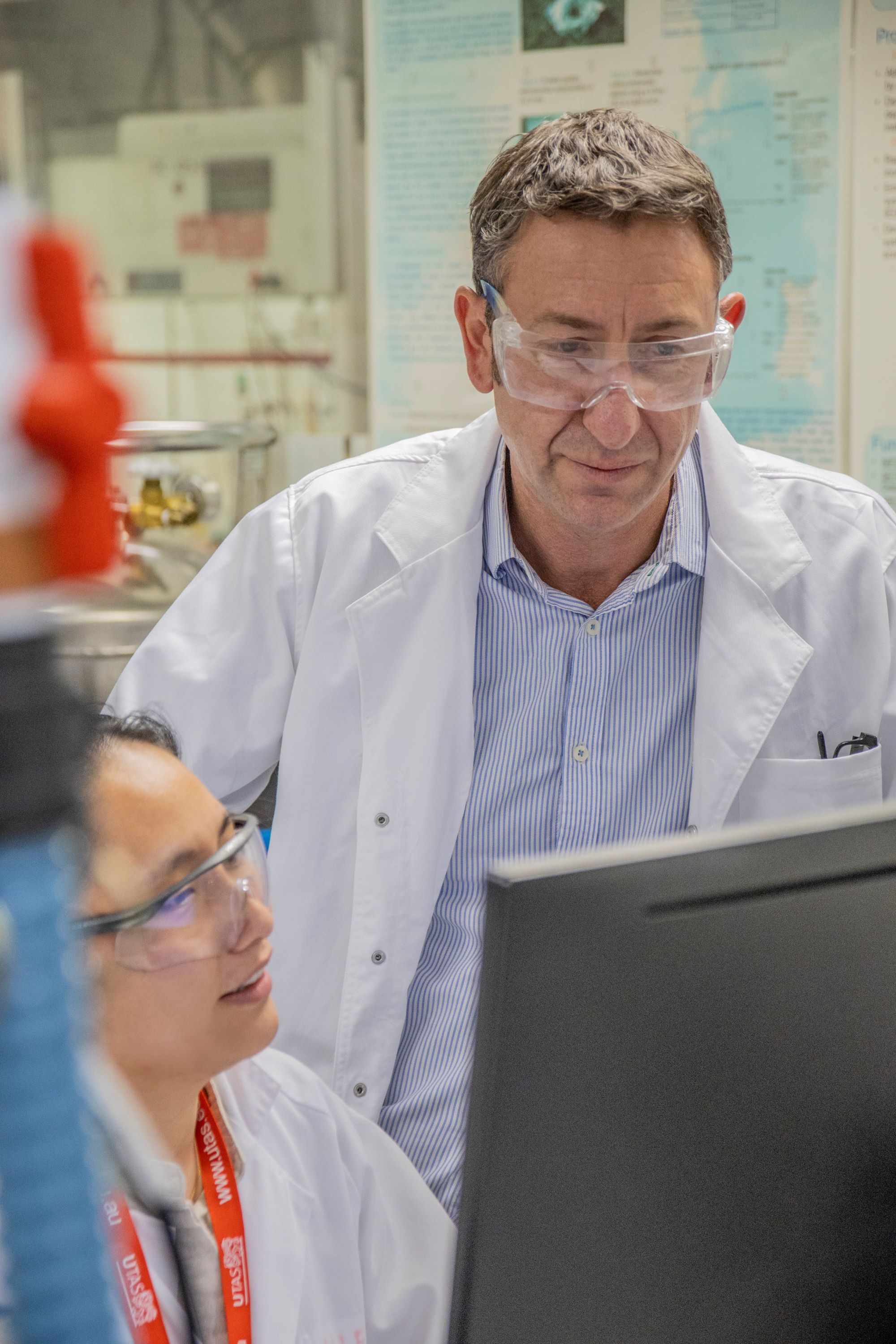The University of Tasmania is supporting the country’s biggest gathering of analytical chemists and separation science industry leaders in Hobart for the third Australian Symposium on Advances in Separation Science (ASASS 2023), signalling a happy return to pre-pandemic research and industry collaboration.
Separation scientists are experts in analytical chemistry, the science of physically separating out specific molecules from other substances, then accurately measuring them.
These specialist scientists play a crucial part in supporting many Tasmanian organisations, including the manufacturing of foodstuffs, beverages (think of your favourite Tasmanian whiskey or beer) and natural products, in agribusiness, and across the spectrum of environmental and health sciences.
ASASS Co-chair, Professor Brett Paull is a world-renowned leader in separation sciences, widely known for his work developing advanced separation methods for biological and environmental analysis, and advancing portable analytical technology. He said the conference was a highlight of the year, and a chance to check-in with colleagues from around Australia and the world.
“Collaboration between researchers in our own field is very important, but it’s even better that we include our end-users and instrument manufacturers in the conversation. This is how we know our work is relevant and is solving the problems industry experiences – in water monitoring, forensic science, mining, pharmaceuticals and a myriad of other industries and partner organisations our scientists engage with every day,” Professor Paull said.
Topics covered in the symposium include how scientists were able to gain insights into the spread of COVID-19 by studying localised sewage samples, detection of potentially harmful PFAS in urban areas and the use of ‘electronic nose’ technology that can be used to help locate missing persons.
Researchers and industry will also discuss the use of 3D printing in new membrane-based testing technology, recent sustainability advances in separation science analysis techniques and how, together, they can continue to translate Australia’s top-quality research into high-impact outcomes for businesses and the community all around the world.
Addressing real needs
Irish analytical chemist, and conference keynote speaker, Dr Eoin Murray visited the University of Tasmania during his PhD studies in 2017 and 2018 to learn about portable analytical chemistry systems.
He has since gone on to develop and commercialise a portable ion chromatography system that allows for in-situ monitoring of industrial and environmental waters. The real-time nitrate and nitrite analysis system, owned by spin-out Aquamonitrix, delivers the precision and accuracy found in a lab system without the need for very large and expensive equipment and long processing times, making monitoring faster, cheaper and more effective for end-users.
Dr Murray said the best thing about working in research and development for new analytical chemistry technology was the ability to address a real need in the marketplace – adding value to important industries ranging from wastewater and drinking water treatment to aquaculture and agriculture.
Integrated with industry
The University of Tasmania is a national leader in the field of separation science and is home to the Australian Centre for Research On Separation Science (ACROSS), which was founded in 2001 by the Tasmanian ‘founding father’ of analytical chemistry Professor Paul Haddad and now includes over 150 researchers and alumni members. More than two thirds of these separation scientists were trained in Tasmania.
Professor Paull said developing the next generation of separation scientists to ensure they are integrated closely with industry is the key to ensuring ongoing impact for Australian businesses and the community.
“We are looking forward to officially launching the Australian Research Council Training Centre for Hyphenated Analytical Separation Techniques (HyTECH) later this year, in partnership with The University of Queensland and Deakin University,” Professor Paull said.
“This will be a hub for separation science research that combines more than one existing analytical chemistry technique like chromatography and mass spectrometry.
“A focus of HyTECH will also be to build partnerships with local organisations like the Derwent Estuary Program , the Australian Antarctic Division, and Norske Skog, as well as multinational organisations such as Thermo Fisher Scientific, to ensure the practical requirements of technology end-users are always a consideration, and to create pathways for our scientists into industry.”
Find out more about studying science at The University of Tasmania, or learn more about how you can partner with our world-class analytical chemistry team.



